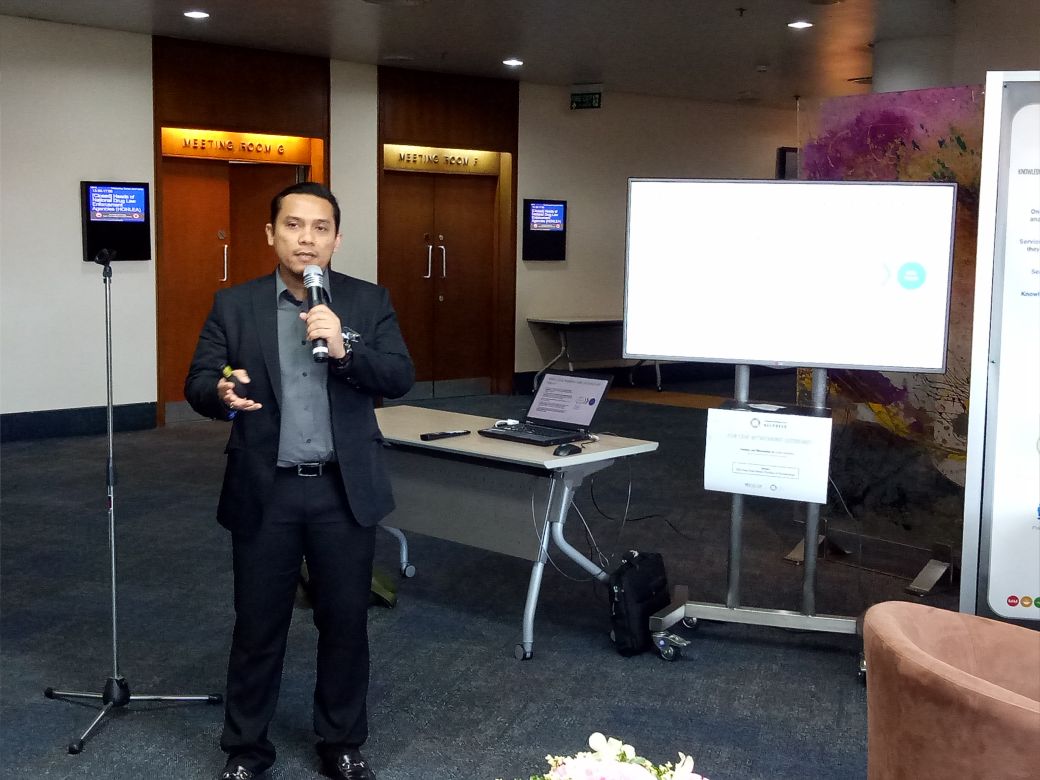Recognizing the opportunities of regional cooperation to accelerate sustainable development, the countries of Asia and the Pacific agreed on a regional road map for implementing the 2030 Agenda for Sustainable Development at the 4th Asia Pacific Forum on Sustainable Development in 2017. To accelerate progress towards achieving SDGs, the road map calls for strengthened regional cooperation on these priority issues, continued and coordinated support provided by the secretariat and other UN institutions and (sub)regional organizations, as well as more effective knowledge sharing across borders. In response, ESCAP is holding a week dedicated to enhancing and deepening the understanding of the key challenges and solutions for effective implementation of the SDGs. SDG Week aims to strengthen capacity and increase momentum for SDG implementation in the region through sharing of experiences and knowledge and showcasing innovative, integrated and inclusive approaches.
During the SDG Week, GWP Southeast Asia (GWP-SEA) was invited to participate in the Networking Session to present one idea and one case study that will help to support the region to achieve SDGs target, specifically for water related target. During this session, Regional Coordinator of GWP-SEA presented the concept of SDG Country Readiness Index and Water and Sanitation e-Survey case study in Indonesia.
The concept of SDG Country Readiness Index was presented as the coming project of GWP-SEA under the SDGs Preparedness Facility Program managed by Global Water Partnership Organization (GWPO). The concept of SDG Country Readiness Index is based on the need to map country readiness in achieving SDGs targets on water (SDG 6) and SDGs targets on partnership (SDG 7), to be able to identify countries in need of support. The mapping of country readiness is then followed up by the development of support menus that will be, ideally, funded by financial partners through the establishment of readiness trust fund in every country who needs support.
The beauty of SDG Country Readiness concept lies how this initiative bring all stakeholders to be in the same boat and accurately support countries in need based on their readiness.
As for water and sanitation e-Survey case study in Indonesia, the regional coordinator of GWP-SEA presented how this survey tool has been able to help the local government to address data management problems as well as development of evidence based planning. The main question regarding data for water and sanitation access is not how many percentage of households already have access, but where are those household that do not have access to water and sanitation? This used to be considered as a million-dollar question, but with the availability of this tools, it is no longer a million-dollar question. It is more to a 60 cent/households question. Through the survey tools, six cities (Pasaman, Pariaman, Sijunjung, Pesisir Selatan, Solok, and Mentawai) in West Sumatera Province in Indonesia have proven that data management problem can be addressed and locating those households that have and do not have access by name bay address is possible in an accurate and cheap way.
The presentation was only delivered within 10 minutes and could draw many participants interest, including stakeholders from different sectors such as energy sector. Many organizations were interested, including UNESCAP as the organizer of the session. The development of SDGs Country Readiness index was presented again during the UN Water Asia-Pacific Regional Consultation meeting on the 1st of December 2017, based on the request of one of the participants who was the member of UNESCAP (all participants were from UN bodies, except GWP-SEA). After the presentation, representative from UN-Habitat also showed its interest, and will see if further cooperation could be developed.
Based on this experience, it is highly recommended for GWP SEA to develop the zero-draft concept note of SDG Country Readiness Index and the scaling up of water and sanitation e-Survey project for all Southeast Asia countries as soon as possible. Soon after the zero-draft developed, the best strategy is to share it with potential partners, such as UNESCAP, ADB, World Bank, and other potential partners to develop it further to become a joint proposal/concept note to be implemented together.
